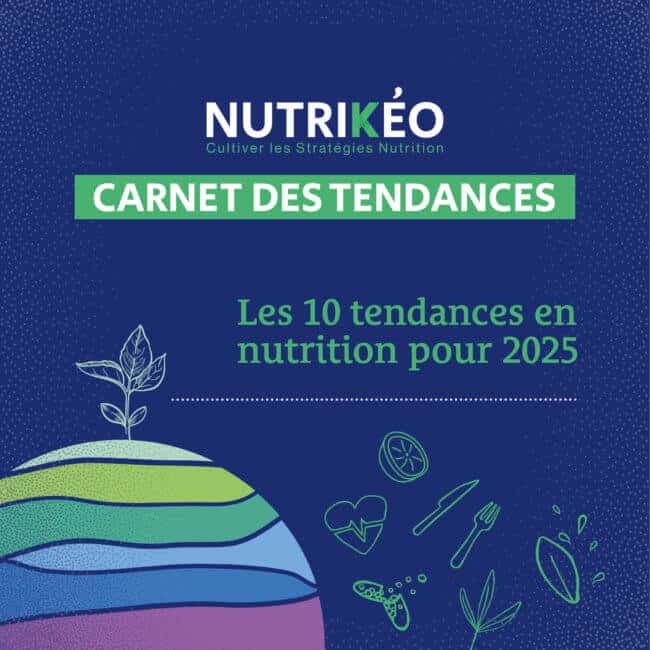Until a few years ago, all efforts around a cancer patient were focused on treatment. Although the latter is the central element, we are seeing more and more awareness of the importance of physical activity and patient nutrition.
Indeed, cancer and related treatments can significantly affect biological functions, including nutritional status. Nutrition plays an important role in tumour development, symptoms, side effects, response and recovery related to treatment.
Nutrition and cancer: the 2020 challenge for health and food actors!
However, nutrition solutions and initiatives, particularly to improve the patient’s quality of life, are still few in number, and food support during the illness is too often neglected…
[wcm_nonmember]
This article is premium. <a href= »https://www.culture-nutrition.com/en/my-account/ »>Sign in</a> if you have an account. Otherwise, <a href= »https://www.culture-nutrition.com/en/subscribe/ »>discover our premium offer</a>.
[/wcm_nonmember]
[wcm_restrict]
The explanation is simple: food is not a treatment in its own right and does not contribute « directly » to healing. However, it has many other functions and must be considered as a complement to the treatment.
It allows, among other things, a better response of the tumour to treatment, a reduction in side effects, a strengthening of immunity, thus reducing the risk of infection, a reduction in the toxicity of the treatment and, of course, an improvement in the patient’s well-being for the most comfortable daily life possible.
This is why there is now a strong demand for multiple solutions to problems that are still confusing for the patient: what to eat, how to prepare meals, etc. Are recommendations such as « eating more vegetables » true or false in the case of cancer?
Focus on undernutrition
For some types of cancer, undernutrition is present at diagnosis in nearly 50% of patients1. Especially for cancers related to the digestive system, it is one of the first indicators of the disease1.
Beyond the influence of undernutrition on treatment-related morbidity and mortality from cancer, severe undernutrition is associated with a risk of grade 3 and 4 side effects, which can lead to treatment interruption.
Undernutrition in cancer patients must therefore be a priority in parallel with treatment.
In theory, it is obviously recommended to have a healthy and balanced diet, but in the case of advanced cancer, it is sometimes preferable to maintain eating habits that predate the disease. A simple reason for this: to keep a maximum chance of continuing to provide the body with a sufficient source of energy to better fight. Changing your eating habits requires a lot of energy, sometimes painful constraints that must not become a barrier to the patient with advanced cancer.
Maintaining « good nutritional status » is primarily linked to adequate protein and calorie intake, and the fact that these calories and protein come from a less healthy diet at this stage is ultimately of secondary importance.
A recommendation that is therefore surprising but supported by research on diet during treatment: pleasure first and consumption of foods that « you want » and provide energy. By the way… the myth of fasting during treatment is obviously to be banished…
Pleasure and desire: an overview of successful « nutrition & cancer » initiatives
Industrials, start-ups, restaurants… what if you brought your seed to give pleasure and desire back to patients?
-
The aperitif as everyone!
Mamma Beer proposes to fight against the side effects of chemotherapy with a beer enriched with vitamins and minerals, including potassium and vitamin B. It helps to compensate for the alteration of the taste of food during the treatment. An excellent initiative straight from Eastern Europe.
Blue Elephant Cooking School and Restaurant in Bangkok has created special menus for women with breast cancer. Chief Noorororor Somany Steppe, also an ambassador for the Queen Sirikit Center For Breast Cancer Foundation, shows her support with an elaborate menu adapted to breast cancer with foods designed to strengthen the immune system and numerous herbal combinations for more flavour. A large number of organic products and ingredients are also used in preparations such as quinoa, karonda and riceberry. The latter is particularly rich in antioxidants, fibres and minerals.
How about fast-good? If they do not offer an enriched burger, Big Ferdinand, the Parisian « Atelier du Hamburgé », at least had the audacity to launch a support campaign with chef Christophe Michalak for Gustave Roussy, the leading European cancer research centre. The objective? Raise funds for research by proposing for one week, from December 12 to 16, « Le Gustave », a recipe specially created for the occasion. 100% of the sales will be donated directly to the Gustave Roussy centre.
-
Eating better in hospital is no longer an impossible mission!
For hospitalized patients, the meal service must be gourmet to improve their quality of life. Some institutions have understood this well, such as Saint-Louis Hospital, where every lunchtime, young cancer patients receive a meal designed by a chef to restore their appetite.
Marinated lacquered duck with a sweet potato purée, this is one of the « toasted meals » served in the hospital. « Until now, I only ate the frozen dishes my mother brought me, » says the 17-year-old Mathieu, looking at the plate nicely presented with the lacquered duck. « In hospitals, patients often experience a loss of sensory awareness […] This type of initiative breaks the monotony and restores the taste of food pleasure, » explains Professor Nicolas Boissel, head of the hematology department at Saint-Louis Hospital.
We can also greet Alexandre Bourdas, the starred chef of SaQuaNa in Honfleur, who has been working for more than two years on developing recipes for patients. In 2017, in partnering with Elior, the chef was already proposing the creation of 57 recipes for the Gustave Roussy cancer centre and made it possible to serve, twice a week, a plate worthy of a great restaurant to the patients of the centre.
The accompaniment thought by patients
Proposing solutions for better eating, thought by patients themselves, here is the ambition of Philippe Pouillart, PhD in immunopharmacology and research professor in culinary practices and health at the Institut polytechnique LaSalle Beauvais.
This is how he created « Vite Fait Bienfaits« , a website and a mobile application to help those who need to manage their daily food needs at home, with adapted and gourmet recipes.
A concept based on the NEODIA program, a « translational research » program launched in 2010 by researchers at the Institut polytechnique UniLaSalle. The objective? Work hand in hand with 200 patients at the “Centre hospitalier de Beauvais” to better understand taste deviation and their new taste preferences. Since 2012, researchers have been working with a « club » of 10 people in educational culinary workshops to test the validity of some 100 recipes. Today, these culinary workshops are fully integrated into the patient care process in several hospitals, clinics or prevention centres.
The moral of this story is that “thinking of new initiatives to improve patients’ daily lives… that’s good, but thinking of them with them is better”.
In conclusion, we are only at the beginning of holistic and daily solutions for cancer patients. Health actors, food industrials or even collective or commercial catering sectors are real opportunities for patients’ « better living ». A fine example with Fortimel Sensation from Nutricia, which innovates with a hyperenergetic and hyperproteinized oral nutritional supplement with the objective of fighting against undernutrition in cancer patients. Or with Vik, the chatbot for chronic diseases and breast cancer launched by the start-up Wefight in Montpellier. What about you?
[1] Émilie Thériault, Nutritionniste, La nutrition en oncologie, Octobre 2012
[/wcm_restrict]












